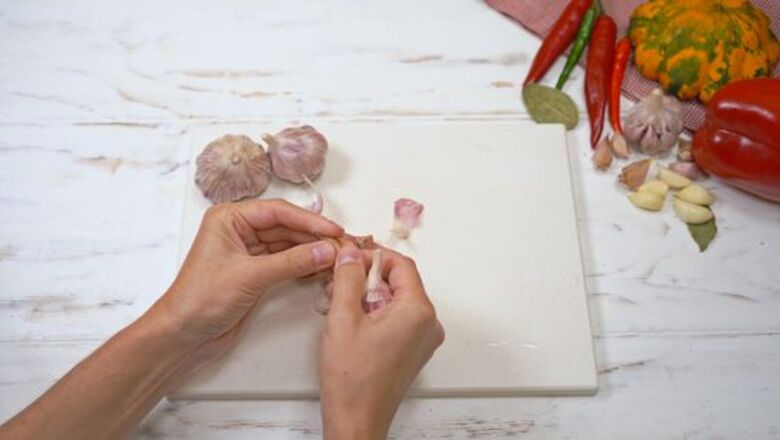
views
Peeling by Knife
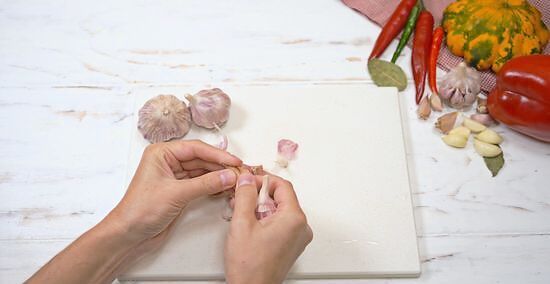
Get a garlic bulb and separate a clove. A clove is one of the small, wedge-shaped pieces that make up the entire "head" of garlic. Simply pull one off the cluster with your finger tips. You can cut away the papery white skin as well to make this easier.
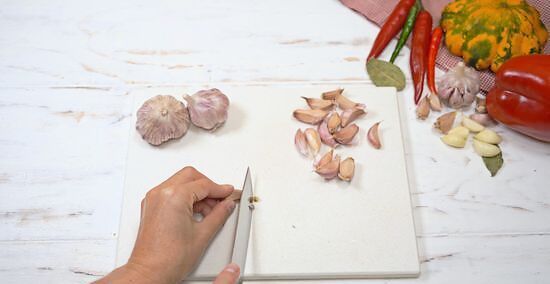
Cut away the brown top of the garlic. If there is a hard, thin brown "top" on the clove. Slice it away with your kitchen knife. This makes peeling slightly easier, but it is not strictly necessary, and some cloves will not have much of a stub to remove. You can also cut the clove in half. This may make it easier to ultimately remove the skins.
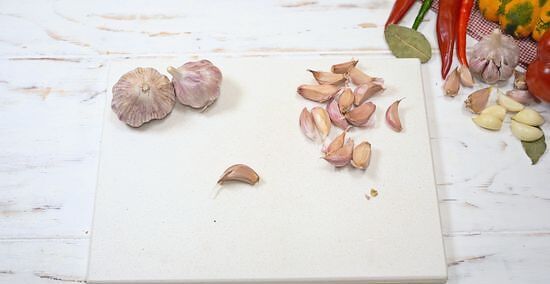
Place the clove on a chopping board. Lay it flat side down, so that the part of the clove that was nearest to the center of the head faces away from you.
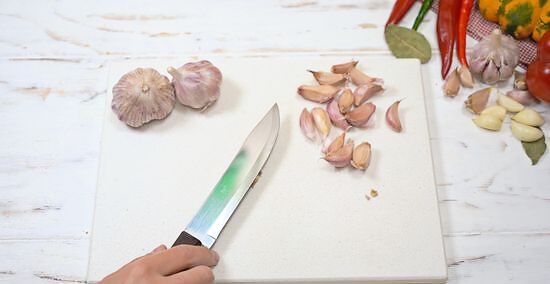
Place the flat side of the knife on the clove and push down firmly. You want a quick, firm strike with the heel of your hand. You'll hear a light crunch. Remove the blade to see the skin detached from the clove.
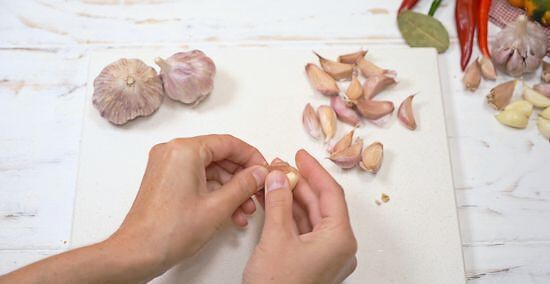
Peel away the skin and waste with your hands. You may need to practice a bit to learn how much pressure you can apply, but when you lift the knife you'll find that the skin comes right off.
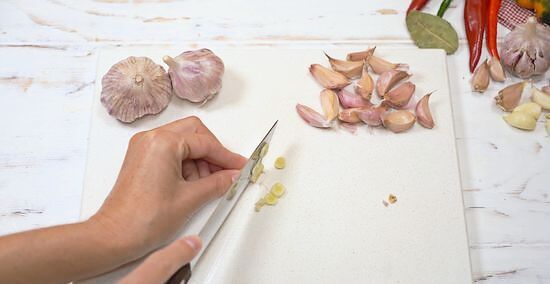
Use the peeled clove, either chopped or full. Your clove is now ready for cooking.
Peeling by Water
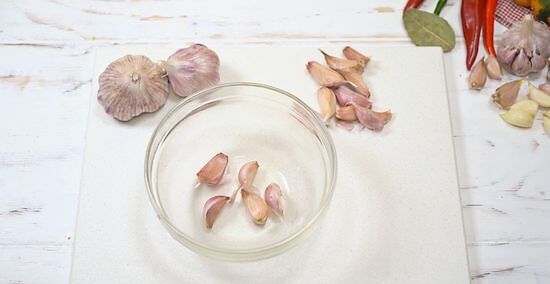
Remove as many cloves as you need from the head. Remove any easily peeled skins briefly before moving on.
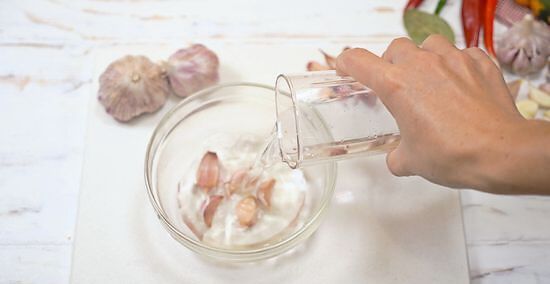
Soak the cloves in cold water for five minutes, making sure they are fully submerged. Place the cloves in 1-2 inches of water and let them rest. The water will loosen the skins. Use a metal whisk to beat the garlic and speed up the process. Place the cloves in a covered or watertight container when possible. While the skins will loosen if they are soaked, you can also shake the container to knock the skins off the garlic even faster.
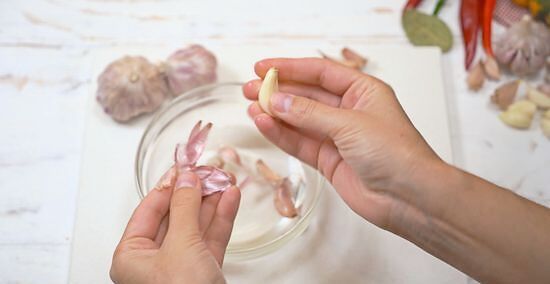
Remove from water. The skin should be loose and easily removed by hand now. Pinch off the skin by pulling on the clove, and cut the ends off if there is any tricky bits still stuck on the clove.
Peeling by Microwave
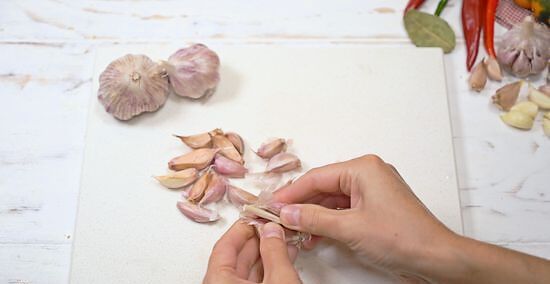
Remove the cloves you need from the head. Do no microwave the entire head of garlic, as this can ruin it for later nights. Simply remove the cloves you plan on using right then.
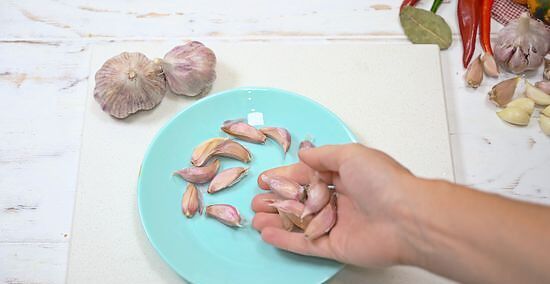
Put the garlic clove/s in the microwave for 5-10 seconds. With the garlic on a small plate, heat them up briefly on high. You should notice the skin billowing and loosening.
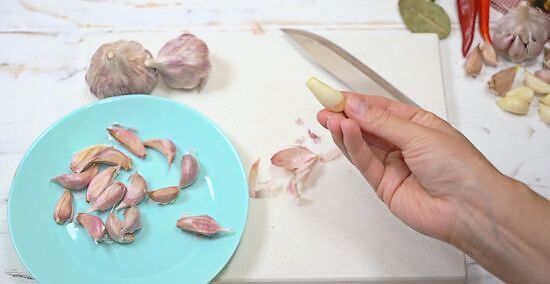
Cut away the loose remaining skin. Cut the root end off with a knife and the skin will slide off easily.
Peeling By Shaking
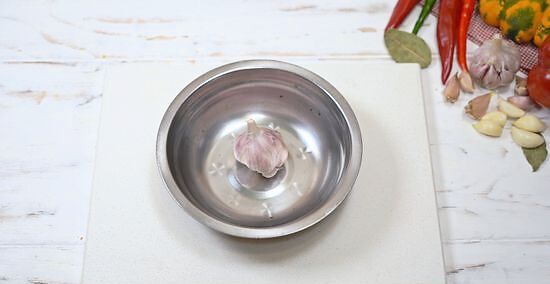
Place the entire garlic head inside one stainless steel bowl. This is a great method for pealing an entire head of garlic at once. Remove whatever loose papery skin you can by hand before beginning.
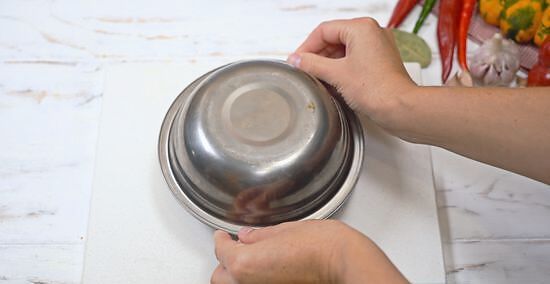
Cover the bowl with another identical stainless steel bowl. Place the bowls together, open side to open side, to form a larger 'sealed' bowl.
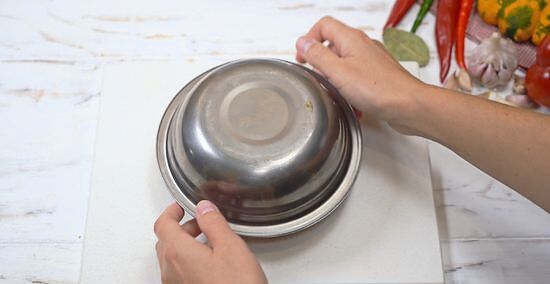
Hold the edges of the two bowls together and shake. Let the garlic clang around inside the bowls for 1-2 minutes, shaking vigorously.
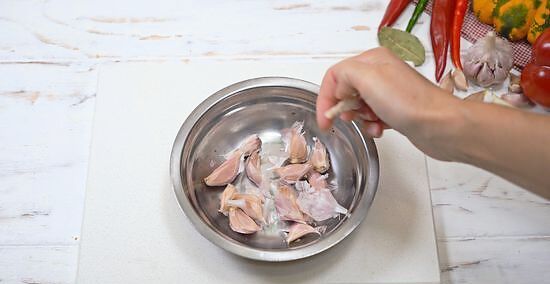
Open the bowls and remove any waste. You should be left with the individual cloves, which will likely still be covered in skin. Remove the skins and the hard bottom chunk of the bulb and throw them in the compost or trash. Then reseal the bowls.
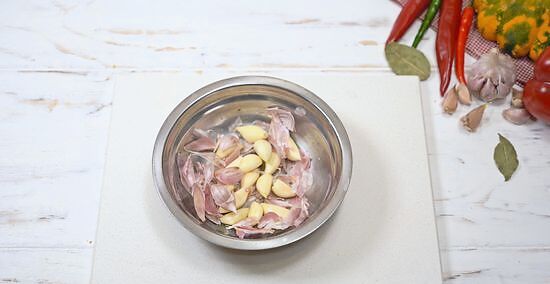
Keep shaking until all of the skins are removed. You may have to pick off some of the finer, thinner skins by hand, or use another method to remove the individual clove skins, such as soaking the cloves in water in the stainless steel bowl. However, with enough shaking the majority of skins should fall off on their own.
Peeling by Mallet
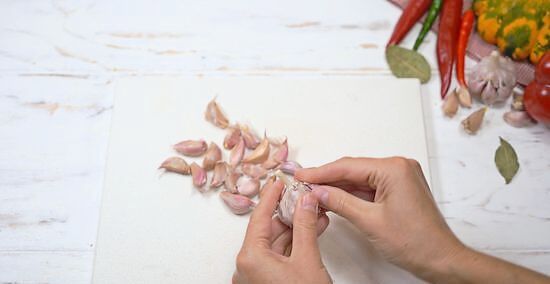
Separate the cloves. Pull the cloves you want to peel off the head and place them on a cutting board.
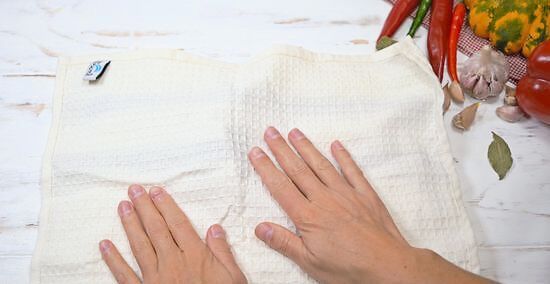
Place the cloves evenly under a dry cloth. The cloth will control the garlic from flying off the table as you hit it. Any kitchen towel will do.
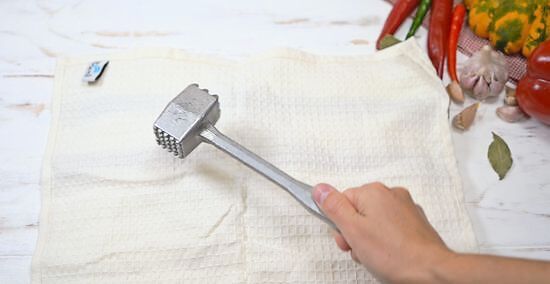
Pound the garlic cloves once or twice with a mallet. This will crack the shell, allowing for better peeling. This is similar to using the knife blade, but it is easier to do on many pieces of garlic at once. You don't want to smash the cloves, simply hit them lightly but firmly to get the skins off.
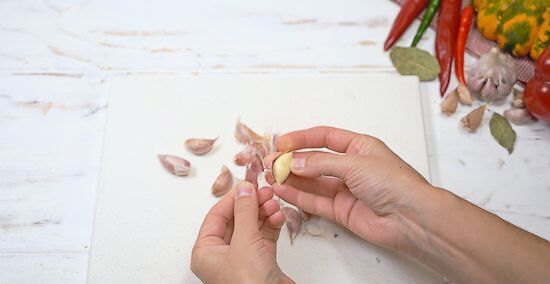
Remove the cloves from the cracked outer shell. Lift the cloth and pull away the remaining skins. You may need to cut some of the ends off to fully remove them.




















Comments
0 comment